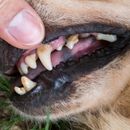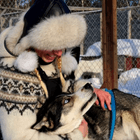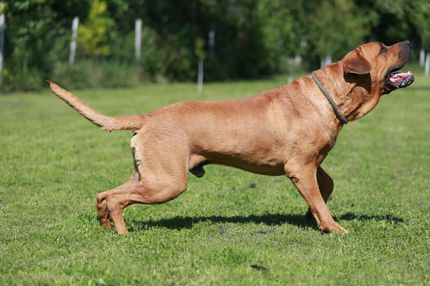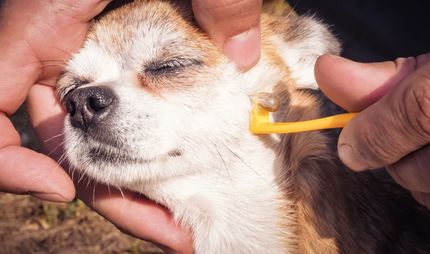Down syndrome and trisomy 21 - What is it?
Down syndrome, medically known as trisomy 21, is a genetic disorder that is common in humans. It is caused by the presence of an extra chromosome 21. Recently, the topic of "Down syndrome dog" and "trisomy 21 in dogs" has been discussed in various circles.
Trisomy 21, commonly known as Down syndrome, is a genetic disorder that occurs in humans when an individual has three copies of the 21st chromosome instead of the usual two. In a normal human karyotype, there are 23 pairs of chromosomes; each chromosome contains a specific sequence of genes responsible for body function. The extra chromosome in trisomy 21 results in overexpression of certain genes, which can cause various physical and cognitive symptoms. Physical features include a flat face, small ears, short stature and sometimes heart defects. Cognitive impairments can occur across a broad spectrum, with some people with Down syndrome having mild learning difficulties while others may have significant intellectual disabilities.
But can Down syndrome actually occur in dogs? The answer is no. This article explains in detail why this is not the case, and yet why it sometimes appears that way.
Why trisomy 21 does not occur in dogs
Humans have 23 pairs of chromosomes, while dogs have 39. Down syndrome, or trisomy 21, is specific to humans and their chromosome structure. Therefore, it is genetically impossible for dogs to have this specific disorder.
Why it sometimes looks like dogs have Down syndrome
Despite the scientific explanation, there are cases when a dog exhibits symptoms that resemble Down syndrome in humans. These include physical characteristics or behavioral abnormalities that could be associated with the condition.
- Genetic abnormalities: sometimes genetic abnormalities in a dog can cause symptoms similar to Down syndrome in humans. However, these are not the same and should be properly diagnosed.
- Congenital Hypothyroidism: A condition known as congenital hypothyroidism can also cause similar symptoms. This is an underactive thyroid gland in newborns that can lead to growth retardation and developmental delays.
- Inbreeding: In some cases, inbreeding can lead to a genetic narrowing that manifests in a range of symptoms that may mimic Down syndrome.
The concept of "Down syndrome dog" or "trisomy 21 in dogs" is a misunderstanding that can arise from the superficial similarity of symptoms. It is critical to obtain an accurate diagnosis from a veterinarian in a dog exhibiting these symptoms. Confusion with Down syndrome could delay timely and correct treatment.
In dogs, these genetic defects, among others, are common:
- Hereditary cataract, also known as cataract.
- Narcolepsy, which manifests itself by seizure-like falling asleep
- Nasal parakeratosis, which causes drying of the nose
- Atopic dermatitis, which is an environmental allergy
- Cauda equina syndrome, which causes disc deformity
- MDR-1 defect, which results in damage to the blood-brain barrier
- Diabetes mellitus, more commonly known as diabetes
- Tracheal collapse, which causes collapse of the lungs and respiratory distress
In dogs, these genetic defects are more common, and genetic diseases usually cause deformities or metabolic disorders in dogs.
It is our responsibility as dog owners to be well informed and ensure that our furry friends receive the proper care and attention. By debunking myths such as the "Down Syndrome Dog" and understanding the science behind it, we can take a step in the right direction to help our dogs live healthy and happy lives.




















